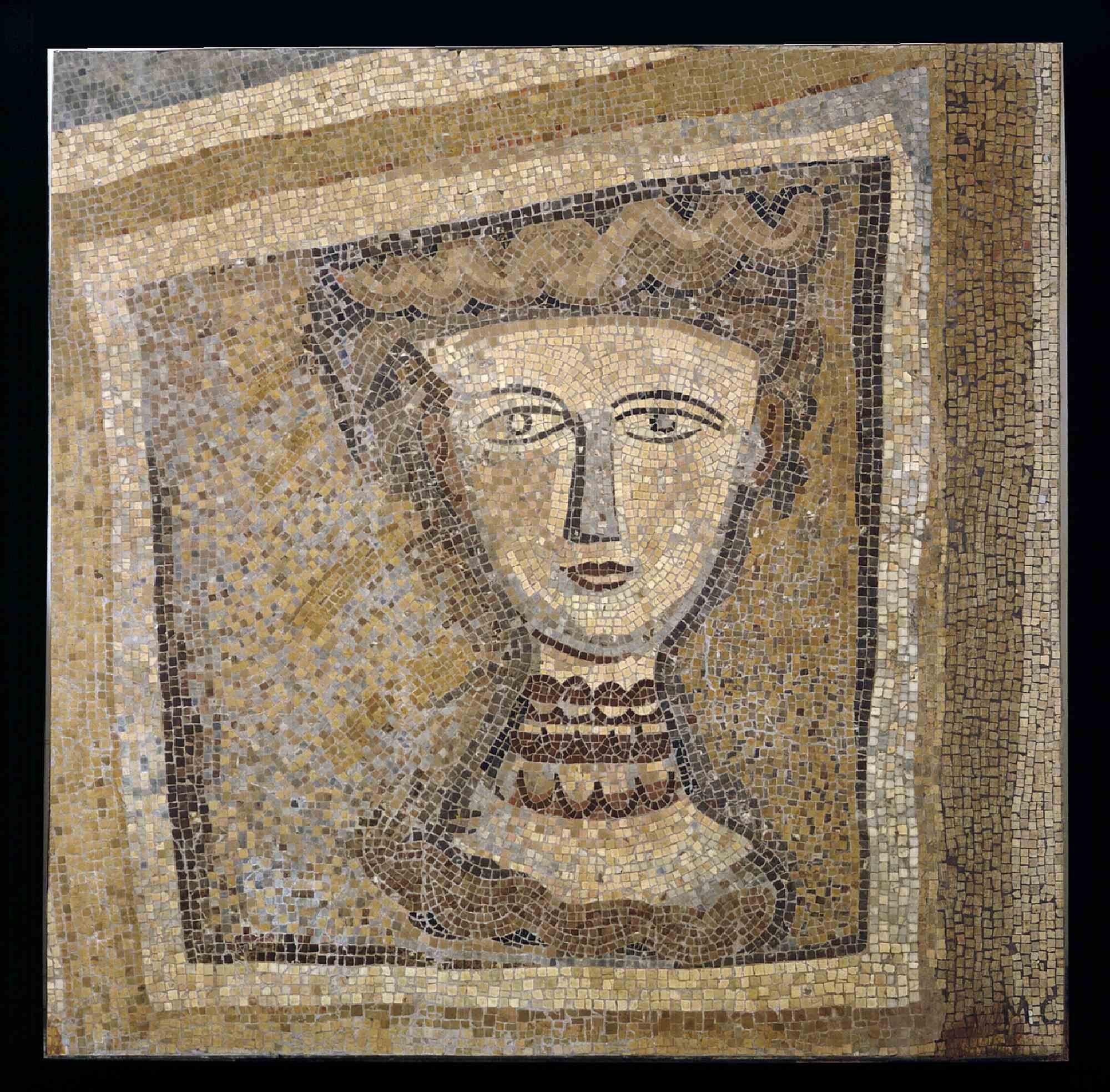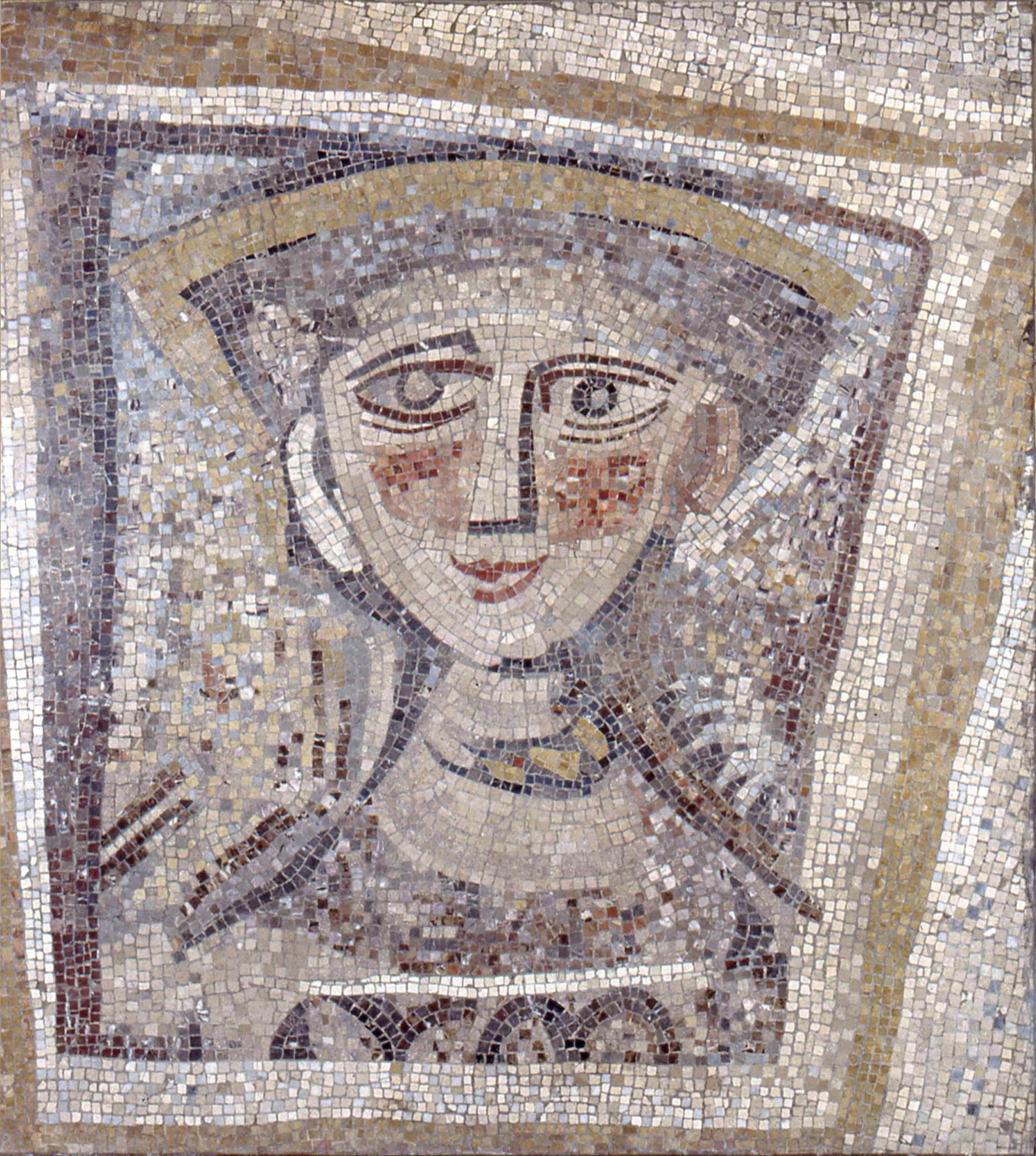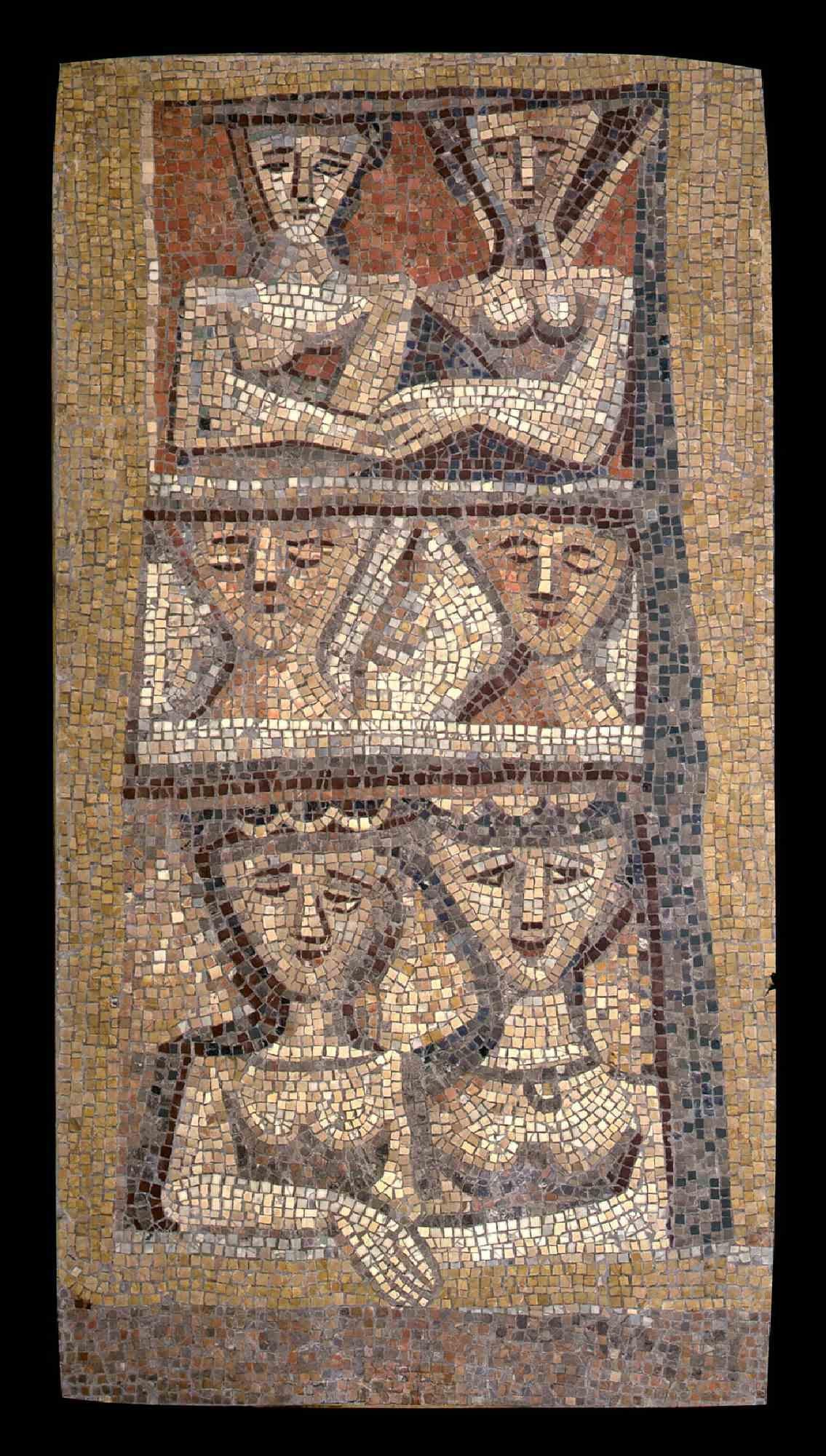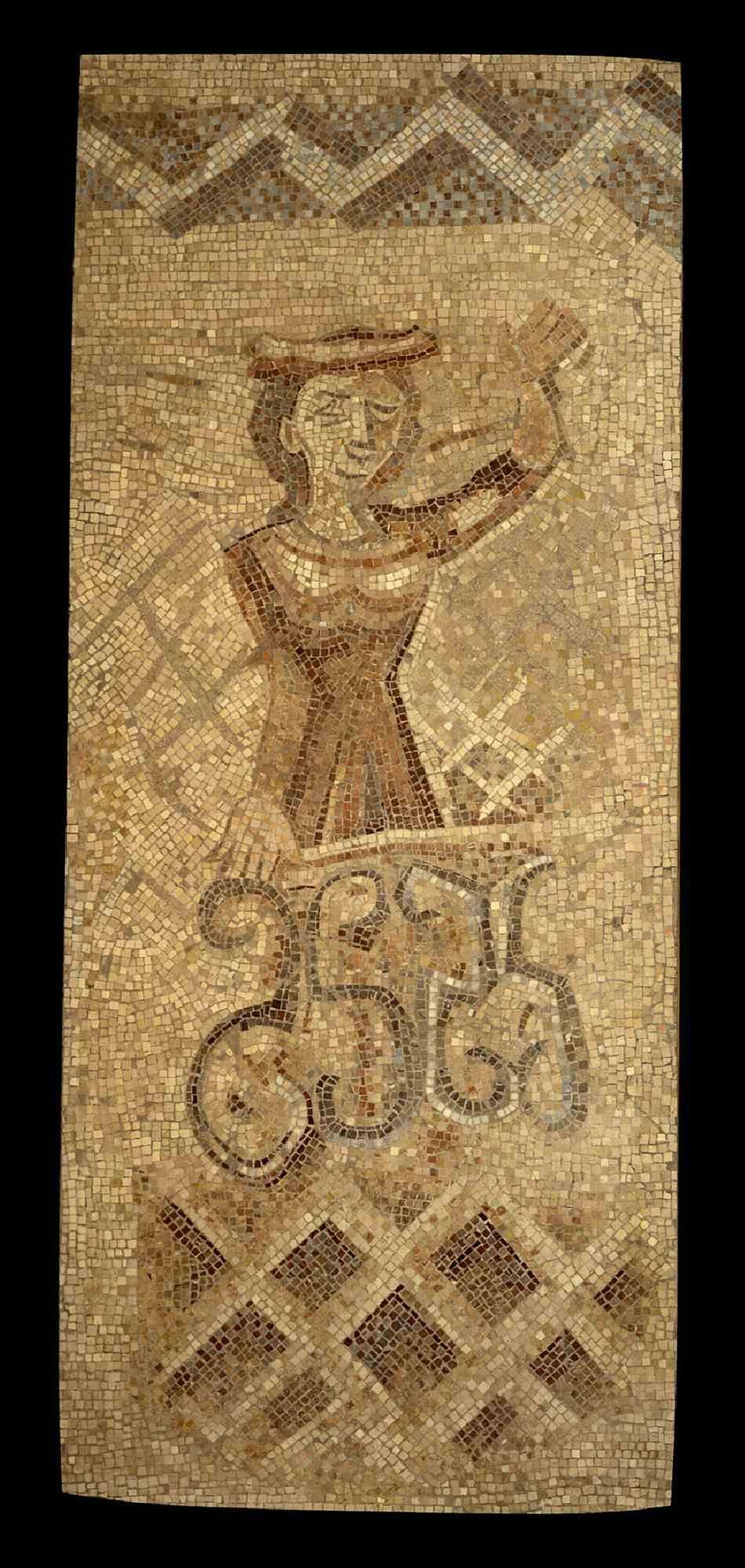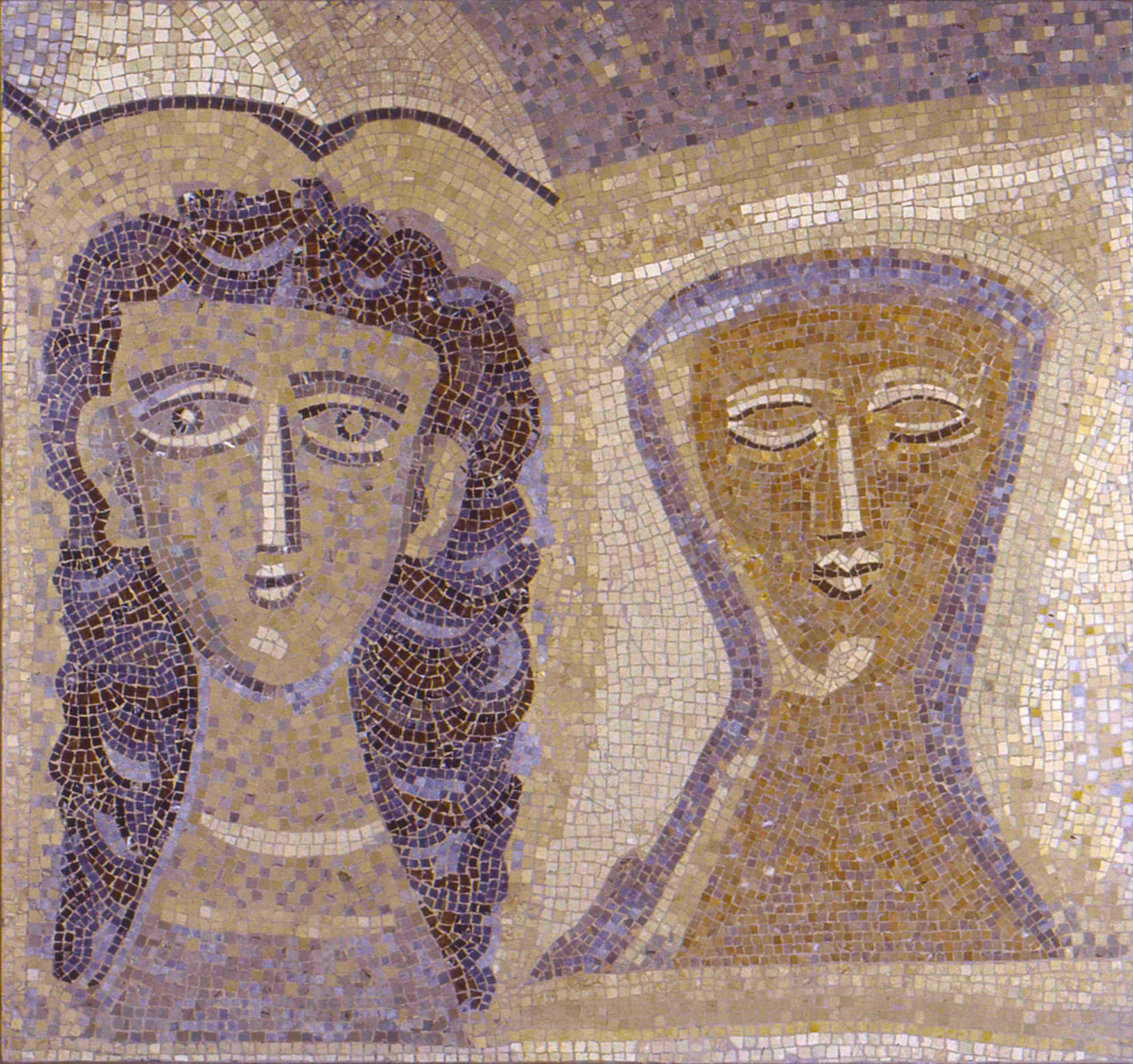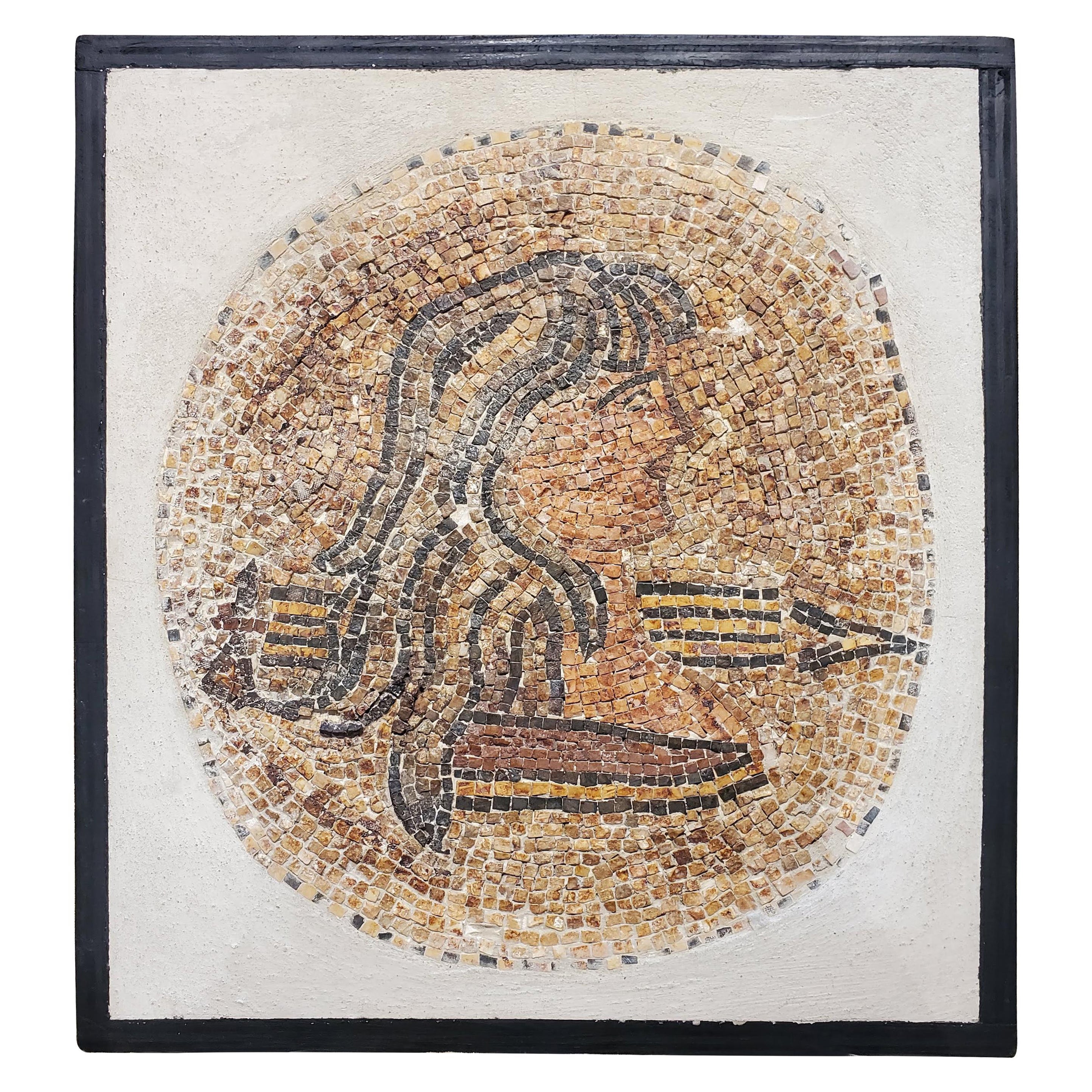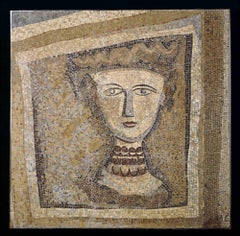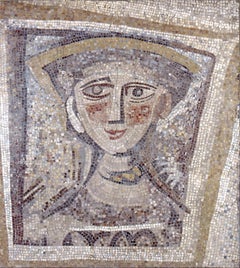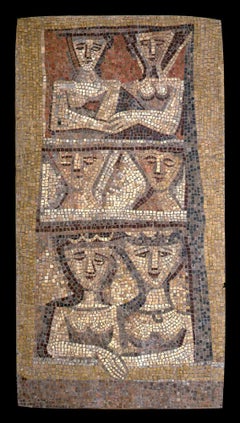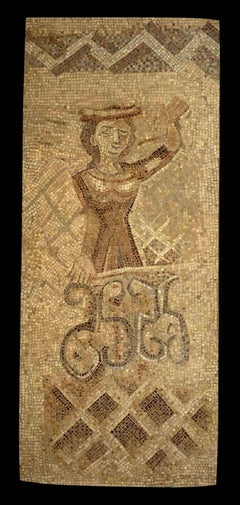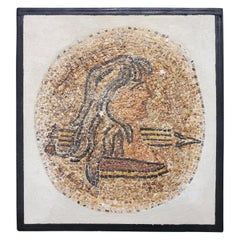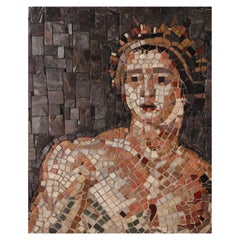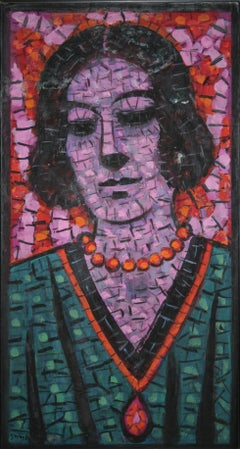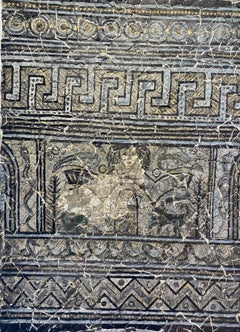Items Similar to Bust of Woman with Pearl Necklace - Mosaic - 1947
Want more images or videos?
Request additional images or videos from the seller
1 of 3
Massimo Campigli, 1895-1971Bust of Woman with Pearl Necklace - Mosaic - 19471947
1947
$161,889.15
£120,429.18
€135,000
CA$221,681.62
A$246,479.80
CHF 128,698.15
MX$3,000,259.30
NOK 1,642,132.34
SEK 1,538,599.53
DKK 1,027,680.44
Shipping
Retrieving quote...The 1stDibs Promise:
Authenticity Guarantee,
Money-Back Guarantee,
24-Hour Cancellation
About the Item
Mosaic on cement panel, realized by Massimo Campigli in 1947.
Unique piece, with certificate of authenticity on photograph by the artist's son Nicola Campigli on photo.
Bibliography: Wagner 2003, pp. 85-89.
Exhibitions:
- "Massimo Campigli - Mediterraneità e Modernità", Darmstadt, 2003, ed. Mazzotta, Klaus Wolbert, n.226, pag. 341 (full page)
- "Massimo Campigli", Mona Bismarck Foundation, Paris, 2001, p. 91 (then Orvieto and Grimaud in 2003)
- Castiglioncello, 2002, out of catalogue
Published also in the catalogue of Campigli, Archive of Campigli, Silvana Editore, 2014, Vol. II, N. M47-048, pp.878.
Certificate of authenticity on photograph by the artist's son Nicola Campigli.
Massimo Campigli
(July 4, 1895 as "Max Ihlenfeld" - 1971)
was a Italian painter and journalist.
He was born in Berlin, but spent most of his childhood in Florence. His family moved to Milan 1909, and here he worked on the "Letteratura" magazine, frequenting avant-garde circles and making the acquaintance of Boccioni and Carrà. In 1914 the Futurist magazine “Lacerba” published his Giornale + Strada – Parole in libertà (Journal + Road – Free speech). During World War I Campigli was captured and deported to Hungary where he remained a prisoner of war from 1916-18. At the end of the war he moved to Paris where he worked as foreign correspondent for the Milanese daily newspaper "Corriere della Sera". Although he had already produced some drawings during the war, it was only after he arrived in Paris that he started to paint. At the Café du Dôme he consorted with artists including Giorgio de Chirico, Alberto Savinio, Gino Severini and Filippo De Pisis. Extended visits to the Louvre deepened Campigli's interest in ancient Egyptian art, which became a lasting source of his own painting.
His first figurative works applied geometrical designs to the human figure, reflecting the influence of Pablo Picasso and Fernand Léger as well as the Purism of "L’Esprit Nouveau".
In 1923, he organised his first personal exhibition at the Bragaglia Gallery in Rome. During the next five years his figures developed a monumental quality, often with stylised poses and the limbs interwoven into a sculptural solidity. The importance given to order and tradition, the atmosphere of serenity and eternity were in line with the post-war reconstruction and the programme of the “Twentieth Century” artists with whom Campigli frequently exhibited both in Milan from 1926-29 and abroad from 1927-31.
As from 1926, he joined the "Paris Italians" together with Giorgio de Chirico, Filippo de Pisis, Renato Paresce, Savinio, Severini and Mario Tozzi. In 1928, year of his debut at the Venice Biennial, he was very much taken by the Etruscan collection when visiting the National Etruscan Museum in Rome. He then broke away from the compact severity of his previous works in favour of a plane with subdued tones and schematic forms rich in archaisms.
During a journey in Romania with his first wife Magdalena Rădulescu, he started a new cycle of works portraying women employed in domestic tasks and agricultural labour. These figures were arranged in asymmetrical and hieratic compositions, hovering on a rough textured plane, inspired by ancient frescoes. These works were enthusiastically received by the critics at the exhibition held in the Jeanne Bucher gallery, Paris, in 1929 and at the Milione Gallery, Milan, in 1931. During the ‘thirties he held a series of solo exhibitions in New York, Paris and Milan which brought him international acclaim.
In 1933 Campigli returned to Milan where he worked on projects of vast dimensions. In the same year he signed Mario Sironi’s Mural Art Manifesto and painted a fresco of mothers, country-women, working women, for the V Milan Triennial which unfortunately was later destroyed. In the following ten years other works were commissioned: “I costruttori” (The builders) for the Geneva League of Nations in 1937; “Non uccidere” (Do not kill) for the Milan Courts of Justice in 1938, an enormous 300 square metre fresco for the entrance hall, designed by Gio Ponti, of the Liviano, Padua which he painted during 1939-40.
After divorcing in 1939, Campigli remarried with the sculptress Giuditta Scalini. Together they passed the war years in Milan and in Venice, then after the war they divided their time between Rome, Paris and Saint-Tropez. In 1943, his son Nicola was born in Venice.
In a personal exhibition at the Venice Biennial in 1948 he displayed his new compositions: female figures inserted in complicated architectonic structures. During the 60s his figures were reduced to coloured markings in a group of almost abstract canvasses. In 1967 a retrospective exhibition was dedicated to Campigli at the Palazzo Reale in Milan. He died in 1971 in Saint-Tropez.
- Creator:Massimo Campigli, 1895-1971 (1895-1971, Italian)
- Creation Year:1947
- Dimensions:Height: 54.34 in (138 cm)Width: 48.82 in (124 cm)Depth: 0.6 in (1.5 cm)
- Medium:
- Movement & Style:
- Period:
- Condition:Insurance may be requested by customers as additional service, contact us for more information.
- Gallery Location:Roma, IT
- Reference Number:Seller: J-442541stDibs: LU65036841452
About the Seller
4.9
Platinum Seller
Premium sellers with a 4.7+ rating and 24-hour response times
1stDibs seller since 2017
7,621 sales on 1stDibs
Typical response time: 2 hours
- ShippingRetrieving quote...Shipping from: Roma, Italy
- Return Policy
Authenticity Guarantee
In the unlikely event there’s an issue with an item’s authenticity, contact us within 1 year for a full refund. DetailsMoney-Back Guarantee
If your item is not as described, is damaged in transit, or does not arrive, contact us within 7 days for a full refund. Details24-Hour Cancellation
You have a 24-hour grace period in which to reconsider your purchase, with no questions asked.Vetted Professional Sellers
Our world-class sellers must adhere to strict standards for service and quality, maintaining the integrity of our listings.Price-Match Guarantee
If you find that a seller listed the same item for a lower price elsewhere, we’ll match it.Trusted Global Delivery
Our best-in-class carrier network provides specialized shipping options worldwide, including custom delivery.More From This Seller
View AllWoman - Mosaic on Cement Panel by Massimo Campigli - 1940s
Located in Roma, IT
Mosaic on cement panel, realized by Massimo Campigli in the 1940s.
Certificate of authenticity on photograph by the artist's son Nicola Campigli.
Category
Mid-20th Century Modern More Art
Materials
Mosaic
$86,340 Sale Price
25% Off
Lady - Original Mosaic - 1946/47
By Massimo Campigli, 1895-1971
Located in Roma, IT
An awesome and beautiful example on Campigli's Art of creating imaginative characters following his creativity, successfully experimented in paintings, and one of the very rare mosai...
Category
1940s Contemporary More Art
Materials
Mosaic
Price Upon Request
Women at the Window - Mosaic by Massimo Campigli - 1947
Located in Roma, IT
Mosaic on cement panel.
Exhibitions:
- "Massimo Campigli - Mediterraneità e Modernità", Darmstadt 2003, ed. Mazzotta, Klaus Wolbert, n. 218, p. 333 (full page).
- "Il Tempo dell...
Category
1940s Modern More Art
Materials
Mosaic
Il balcone - Mosaic by Massimo Campigli - 1947
Located in Roma, IT
Mosaic on cement panel.
Bibliography: Domus 1948, p. 38; Wagner 2003, p. 88.
Exhibitions:
- "Massimo Campigli - Mediterraneità e Modernità", Darmstadt 2003, ed. Mazzotta, Klaus ...
Category
1940s Modern More Art
Materials
Mosaic
Ombrellino (Umbrella) - Mosaic - 1947 ca.
By Massimo Campigli, 1895-1971
Located in Roma, IT
Original Mosaic on cement panel.
Ref.: Domus 1948, p. IX and p. 29.
An awesome and beautiful example on Campigli's Art of creating imaginative characters following his creativity,...
Category
1940s Contemporary More Art
Materials
Mosaic
Woman - Original Lithograph by Massimo Campigli - 1960s
By Massimo Campigli, 1895-1971
Located in Roma, IT
Woman is an original print realized by Massimo Campigli in the 1960s.
Colored lithograph.
The graphic is printed on a sheet folded in half. Entire dimensions of the sheet: 25.7 x 3...
Category
1960s Modern Figurative Prints
Materials
Lithograph
You May Also Like
Roman Micro-Mosaic Portrait of a Warrior Woman in Concrete
Located in Middleburg, VA
This incredible Roman micro-mosaic portrait of a woman shows off a woman warrior in all her glory. Not only interesting because of its age, but the subject...
Category
Antique 15th Century and Earlier Italian Greco Roman Decorative Art
Materials
Stone, Concrete
Natural Stone Portrait Mosaic
Located in Las Vegas, NV
Unique portrait mosaic. Titled "The Athlete", dated 2019 and signed.
The mosaic is constructed out of natural stone in the most gorgeous tones.
No damage to be noted.
Category
21st Century and Contemporary Mid-Century Modern Decorative Art
Materials
Stone
Portrait with Pearl Necklace
By Erich Waske
Located in Wien, 9
Deling with the work of Erich Waske today, one encounters first of all a number of reasons why this outstanding artist has fallen into such undeserved oblivion. In addition to the de...
Category
20th Century Expressionist Portrait Paintings
Materials
Oil, Panel
Eggshell Mosaic, Wall Painting: 'Goddess'
By Paul Wirhun
Located in New York, NY
‘I have been working on eggshells since I was 8 years old, learning the traditional Ukrainian art of pysanky from my mother. This artistic and cultic use of eggs informs my work to t...
Category
2010s Contemporary Figurative Paintings
Materials
Mixed Media
La Collana II
By Massimo Campigli, 1895-1971
Located in San Francisco, CA
This artwork titled "La Collana II" 1952, is an original color lithograph on Wove paper by renown German/Italian artist Massimo Campigli, 1895-1971. It is hand signed and numbered 15...
Category
Mid-20th Century Modern Figurative Prints
Materials
Lithograph
La Collana I
By Massimo Campigli, 1895-1971
Located in San Francisco, CA
This artwork titled "La Collana" is an original color lithograph on Wove paper by renown German/Italian artist Massimo Campigli, 1895-1971. It is hand signed and numbered 46/125 in p...
Category
Mid-20th Century Modern Figurative Prints
Materials
Lithograph
